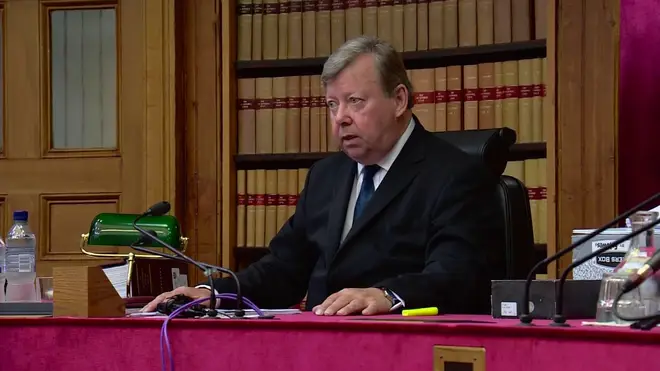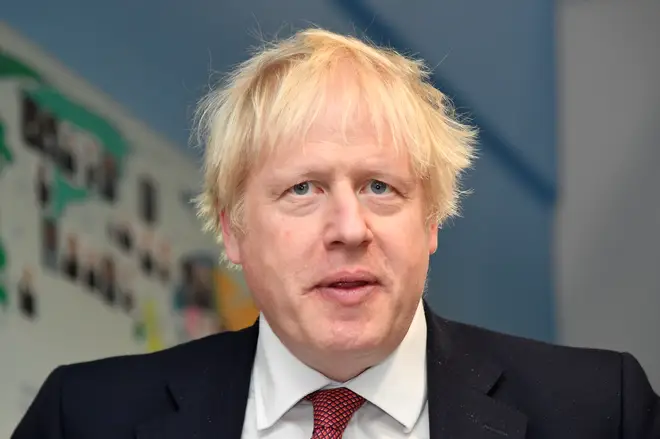
Nick Ferrari 7am - 10am
13 September 2019, 04:04

A senior Scottish judge has criticised Boris Johnson’s suspension of Parliament, claiming it was sought in a "clandestine" manner.
In court papers, Judge Lord Carloway said the "true reason" for the prorogation was to reduce the time available for scrutiny of Brexit.
The Prime Minister’s decision to suspend Parliament was ruled "improper" and "unlawful" on Wednesday by three senior Scottish judges, who concluded it had been done with "the purpose of stymying Parliament".
The judges at the Inner House, the supreme civil court in Scotland, also said the prorogation was "null and of no effect".
In the full opinions released on Thursday, Judge Lord Carloway said: "The circumstances demonstrate that the true reason for the prorogation is to reduce the time available for Parliamentary scrutiny of Brexit at a time when such scrutiny would appear to be a matter of considerable importance, given the issues at stake.
"This is in the context of an anticipated no-deal Brexit, in which case no further consideration of matters by Parliament is required. The Article 50 period, as extended, will have expired and withdrawal will occur automatically."

The judge said this conclusion on the "true reason" stemmed from a number of factors. "First, the prorogation was sought in a clandestine manner during a period in which litigation concerning the prospect of prorogation occurring was extant," he said.
"Although it is possible to argue about exactly what was meant by the respondent's fifth plea-in-law, it is not unreasonable to comment that even the respondent's legal team appear to have been kept in the dark about what was about to happen.
"Secondly, the decision to prorogue in the manner sought was taken against the background of the discussions in which it was being suggested that MPs, and thus Parliament, would be unable to prevent a no-deal Brexit if time was simply allowed to elapse, without further legislation, until the exit date.
"Put shortly, prorogation was being mooted specifically as a means to stymie any further legislation regulating Brexit.
"Thirdly, there is remarkably little said about the reason for the prorogation in the respondent's pleadings."
Judge Lord Drummond Young said: "In my opinion, nothing in these documents can be said to provide any rational explanation as to why Parliament must be prorogued as early as September 9 for a period of five weeks.
"Nor has any other explanation been provided for the length of the prorogation, beyond references to the need to begin a new session of Parliament to promote a new legislative programme.
"That, of course, does not explain the length of the prorogation; merely the fact that prorogation is required.
"In these circumstances I have come to the conclusion that the only inference that can properly be drawn on an objective basis is that the Government, and the Prime Minister in particular, wished to restrict debate in Parliament for as long as possible during the period leading up to the European Council meeting on 17/18 October and the scheduled date of Britain's departure from the European Union.
"It would be wrong to speculate as to whether this is because the Government wishes to persuade the European Union to accept a withdrawal agreement that differs from the agreement previously concluded or whether the Government is truly intent on achieving departure from the European Union without a withdrawal agreement.
"In either event, the matter clearly calls for Parliamentary scrutiny. The effect of the prorogation under consideration, in particular its length, is that proper Parliamentary scrutiny is rendered all but impossible."
The Government is appealing and the case is scheduled to go to the Supreme Court on Tuesday.